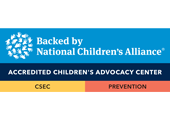Summer Planning Safety and Prevention
May 17, 2021
It is May; birds are singing, the bees are emerging and buzzing, flowers are blooming, and spring is more than in the air. However, what is beginning to creep into the minds of parents is: summer break! Last year guidance from the state made many summer camps and programs either unable to open or offer day programming only. With many parents working from home, a lot of children did not go to programming over the summer. With the successful roll out of vaccines increasing, reopening plans emerging, and many aspects of life returning to “normal”, the opportunity for increased summer programming for children also seems to be a reality. Whether you are looking into programs and activities for your child, or if you are a friend or family member of someone who is, we ask you to invite a question in your search: “how seriously does this program take the safety and prevention of child sexual abuse?”
Yes, we know, this is probably not on your top 10 list. Price, hours of programming, overnight vs day, are there swimming or sailing lessons are typically more in the minds of parents and caregivers. However, how an organization responds to emergencies should be part of this decision making, and discussed by camps and programs. But rarely do organizations openly discuss their prevention strategies, protocols, and procedures regarding child sexual abuse. There are many reasons this happens; the belief that it doesn’t happen, the increased pressure for focuses elsewhere, the excessive requirements for compliance from oversight boards in other areas, and stigma. However, this should not detract from an organization’s responsibility for the protection of the children in their care.
If there is a large enough voice addressing the need for safety, prevention and dialogue about child sexual abuse, we will make a community that is safer for children…
As we discussed in March, we believe that every child serving organization has an inherent responsibility to address child sexual abuse. However, without the pressure beyond required minimums there is no other force to ensure organizations are following through on the prevention of child sexual abuse: except for the parents and caregivers who send their children to their programs. As with many other instances in our society, the power of the consumer of services and products share a collective voice. If there is a large enough voice addressing the need for safety, prevention and dialogue about child sexual abuse, we will make a community that is safer for children and deny the ease of opportunity for predators to work in child serving organizations.
When looking into summer programs and camps this year, here are some questions you could add as a part of your process:
- “What type of training does your staff receive to recognize and respond to possible sexual abuse?”
- “What are your reporting guidelines for alleged sexual abuse involving a staff member?”
- “Do you allow staff members to be alone with children?”
- “Do you have a copy of the staff handbook I can review for your procedures and guidelines?”
- “What background checks do you have in place for your staff during hiring?”
- “How are children kept safe and given privacy during times they may be changing, showering or using the restroom?”
These questions are no different than inquiring about protocols around sports, swimming, archery, working with animals, or science: they are about safety. Parents and caregivers cannot take the risk of not knowing what child serving organizations are doing to keep their children safe, as much as the organizations themselves cannot take the risks of making it easy for predators to enter their employment. Mutual accountability, transparency and discussion is how we reduce the stigma and increase the safety for children. These approaches are how we will create a community where children are free of abuse, have a voice that is heard, and where they enjoy healthy, safe, and empowered lives.






